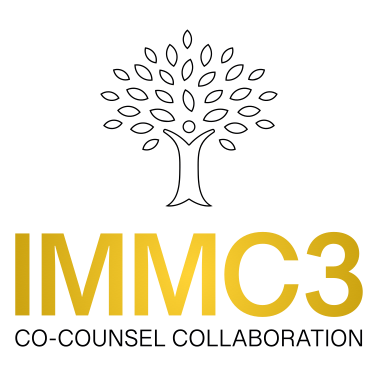Co-counselling
Frequently Asked QuestionsWho sets the fees?
You set the fees.
What if you feel that my fees are too low?
If you have already quoted the fees to the client, we will respect those fees. If the fees are low, then we will discuss pricing with you on the next file and share those fees at the same rate as the first file. We do this because we understand that once you have committed to a set of fees with the client, you can’t go back. And because, as most of our counsels have found, there is a lot more work in doing a file then they have realized in their enthusiasm to get the business.
Do you have suggested fees?
Yes, we can send you a Suggested Price List, or you can discuss this with your co-counsel.
I see that a co-counsel might participate in a consultation with me if needed. Is there a standard fee you use for various types of consultations?
This is up to each individual co-counsel, so you can discuss it with them once one is assigned to you.
If I do a consultation myself and need some assistance with consultation report review/finalizing. Are you able to assist with that and would that be also 55% of my consultation fee?
That would be up to the counsel. who is assigned to your case. We understand that for lower revenue files, (WPs, TRVs, SPs) consultation fees are normal, but again you set the fees and decide whether to charge or not.
if I request a service, provide you with information and speak about a prospect's file and then for whatever reason the client does not proceed with a service/consultation, will there be a fee charged?
No, all we ask is that you have a prospect when you ask for help. We will do everything in our power to help you turn the prospect into a client, then we share the professional fees from the client. As with many service industries, to get to a paying customer you often have to provide a quote first.
Am I only invoiced once the fee is received from the client?
Yes, you only receive an invoice from us once you have confirmed that you received a payment from the client and what the amount is in Canadian dollars. So if you receive funds that are subject to exchange or banking fees, we only share what you get after those fees.
When am I paying your fees ? Is it after I transfer the money from the client's account to my business account (upon invoicing them for services provided) or after I receive the money to the client's account (retainer)?
Under the Client Account rules, you can only transfer funds from your trust account to your operating account once they are earned. However our invoice to you will be for co-counseling services, which will be due upon receipt. So you can transfer the funds into your operating account at that time, and pay our invoice. We also have a Template for the Service Agreement, which is fully compliant with the new guidelines issued by CICC. This includes identifying which costs are included in any deposit and the cost included for each part of the deposit.
Also, when I have a prospect client and setting up a consultation how do you require me to introduce you/your team to them and when do I do it?
As it is always your client and you know them best, it is your choice when and how to introduce us. What we have found in the past is to explain to the client that they’re getting two representatives for the price of one, because their files have certain unusual requirements that have to be met, and you felt that having additional expertise would make sure their files are properly prepared, so they stand the best chance of being approved. Our names must be included in the Service Agreement so that you can share confidential information about the client and their file.
A message from
The Founders
We are providing this service because all of us share the noble intention of meeting our client’s needs in accordance with the highest ethical standards, and that all of us are stronger than one of us.
Knowledge is Power!
